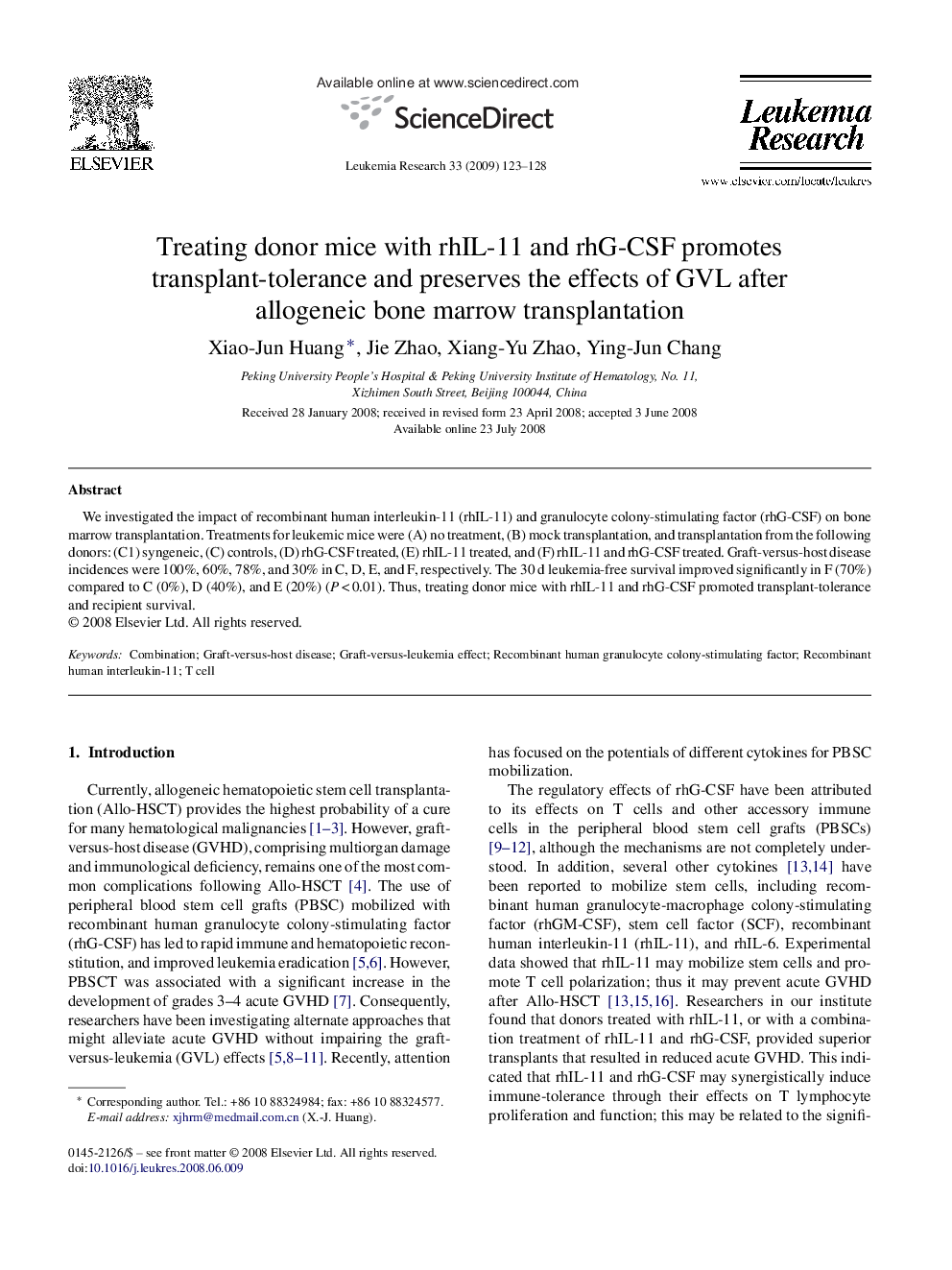| Article ID | Journal | Published Year | Pages | File Type |
|---|---|---|---|---|
| 2138805 | Leukemia Research | 2009 | 6 Pages |
Abstract
We investigated the impact of recombinant human interleukin-11 (rhIL-11) and granulocyte colony-stimulating factor (rhG-CSF) on bone marrow transplantation. Treatments for leukemic mice were (A) no treatment, (B) mock transplantation, and transplantation from the following donors: (C1) syngeneic, (C) controls, (D) rhG-CSF treated, (E) rhIL-11 treated, and (F) rhIL-11 and rhG-CSF treated. Graft-versus-host disease incidences were 100%, 60%, 78%, and 30% in C, D, E, and F, respectively. The 30 d leukemia-free survival improved significantly in F (70%) compared to C (0%), D (40%), and E (20%) (P < 0.01). Thus, treating donor mice with rhIL-11 and rhG-CSF promoted transplant-tolerance and recipient survival.
Keywords
Related Topics
Life Sciences
Biochemistry, Genetics and Molecular Biology
Cancer Research
Authors
Xiao-Jun Huang, Jie Zhao, Xiang-Yu Zhao, Ying-Jun Chang,
